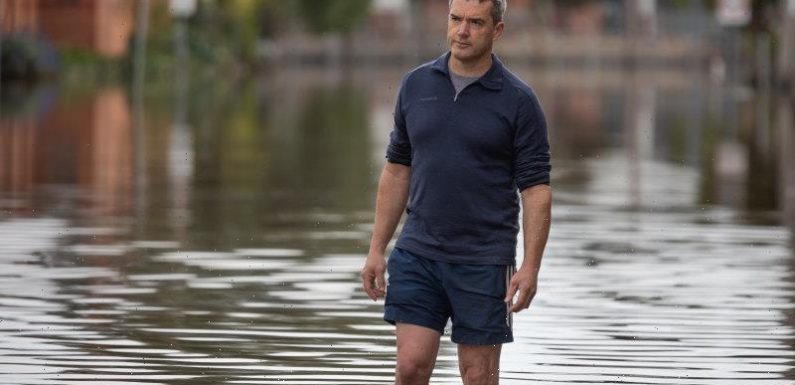
Key posts
- Small amounts of illicit drugs decriminalised in ACT
- Victoria-NSW floods: What you need to know
- Liz Truss resigns as British prime minister
- This morning’s headlines at a glance
-
1 of 1
Small amounts of illicit drugs decriminalised in ACT
The ACT has become the first Australian jurisdiction to decriminalise illicit drugs in small quantities.
The laws passed the territory’s parliament yesterday, meaning people found with “personal use” amounts of nine different types of illicit drugs will not be criminally prosecuted.
They’ll instead be cautioned, fined or referred to a drug diversion program.
The substances decriminalised include heroin, cocaine and speed.
ACT Health Minister Rachel Stephen-Smith. Credit:Alex Ellinghausen
Health Minister Rachel Stephen-Smith said focusing on harm-minimisation rather than punishing drug users was the way forward.
“The ACT has led the nation with a progressive approach to reducing the harm caused by illicit drugs with a focus on diversion, access to treatment and rehabilitation and reducing the stigma attached to drug use,” she said.
“This sensible reform is based on the expert advice that a health focused, harm reduction approach delivers the best outcome for people using drugs.”
There will be a 12-month transition period, meaning the laws won’t kick in until October 2023.
The government said it would use the transition period to bolster oversight arrangements and train frontline workers, including police.
But deputy ACT Liberals leader Jeremy Hanson condemned the “radical” move.
“It wasn’t taken to the community. It’s going to lead to more crime. It’s going to lead to more carnage on our roads,” he told the ABC.
“It’s not going to change the number of people going into the criminal justice system, and it’s not going to fix the problem that we have now which is not enough people being able to access treatment.”
AAP
Victoria-NSW floods: What you need to know
Residents in low-lying parts of the northern Victorian town of Echuca and the southern NSW town of Moama are still being told to evacuate given the Murray River is expected to peak over the weekend or early next week.
Authorities are worried that the river will surpass levels not seen since the 1993 floods.
On the Victorian side of the border, locals have spent days preparing a makeshift flood levee through the middle of town in a bid to protect thousands of properties. But the State Emergency Service has warned the measure might not be enough.
Residents of Kerang, northwest of Echuca, remain cut off due to floodwaters. While up to 50 homes could be inundated later today, locals are confident that the town’s flood levee will hold.
In Rochester, south of Echuca, residents are being told it’s still not safe to return.
Meanwhile, in NSW, western Sydney residents are being told to be aware of possible rising water along the Hawkesbury-Nepean region. Minor flooding is expected today (the region has already endured two major flood events this year).
Authorities also say that renewed flooding is possible in parts of inland NSW from today.
Yesterday, Prime Minister Anthony Albanese said about 500 ADF personnel will assit cut-off communities and help with clean-up efforts.
And in Tasmania, Premier Jeremy Rockliff has announced that farmers impacted by recent flooding in his state will be eligible for grants of up to $25,000.
Around 100 properties were damaged following record-breaking rainfall late last week. Wild weather is set to return to parts of Tasmania today.
My colleague Lachlan Abbott is running this morning’s dedicated floods blog. You can read that coverage here.
with AAP
Liz Truss resigns as British prime minister
Liz Truss has resigned after just 44 days dramatic days in Downing Street which were marked by financial turmoil, becoming the shortest-serving prime minister in British history.
Truss was told she had lost the confidence of the majority of Tory MPs and cabinet ministers on Thursday morning (London time) that and she should resign, leaving a bitterly divided Conservative Party with the challenge of choosing the UK’s third prime minister in a matter of months and growing calls for a general election.
Prime Minister Liz Truss delivering her resignation speech.Credit:Getty
Rishi Sunak, former chancellor, and Penny Mordaunt, leader of the House of Commons, are the two frontrunners to replace her, while there is growing speculation former prime minister Boris Johnson many again contest the ballot.
Johnson was forced out on September 6 this year having won a 80-seat majority as leader less than three years earlier.
Read the full story here.
This morning’s headlines at a glance
Good morning and thanks for your company.
It’s Friday, October 21. I’m Broede Carmody and I’ll be anchoring our live coverage for the first half of the day.
Here’s what you need to know before we get started.
- British Prime Minister Liz Truss has resigned after just 44 days in the top job. It marks the shortest ever stint in Downing Street history
- Residents in low-lying parts of northern Victoria and southern NSW remain on alert. Authorities are expecting the Murray River to peak and eventually rise to levels not seen since the 1993 floods over the weekend or early next week.
- In an Australian first, the ACT has decriminalised small amounts of illicit drugs.
- Former NSW Labor frontbencher Tania Mihailuk has quit the party less than six months out from the state election.
- The Victorian government’s decision to bring back government-owned energy assets has triggered a debate about when privately owned coal fired power plants should be closed.
- And in case you missed it yesterday, Medibank Private confirmed hackers have stolen sensitive health information. And Greens senator Lidia Thorpe resigned as the party’s deputy Senate leader.
-
1 of 1
Most Viewed in National
Source: Read Full Article

